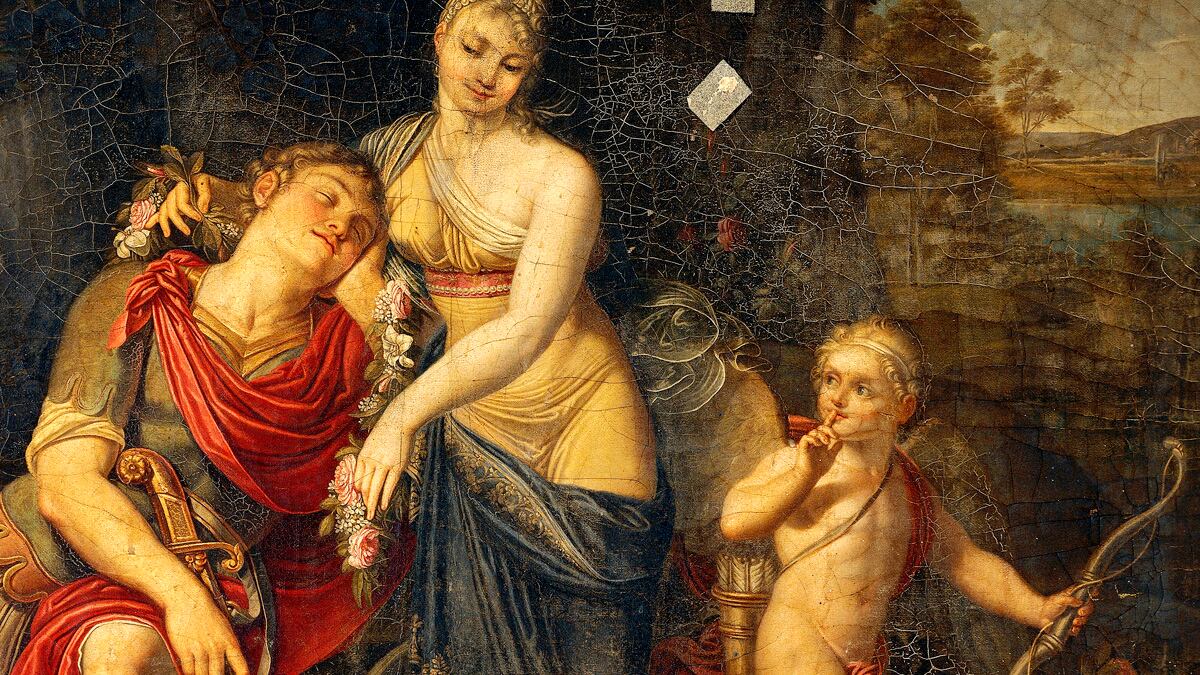When E.M. Forster asked a hypothetical reader in his book Aspects of the Novel why he read fiction, the character said, “It seems a funny sort of question to ask—a novel’s a novel—well, I don’t know—I suppose it tells a story, so to speak.” The story is essential, of course, to keep us engaged. But those of us who are drawn to novels aren’t there purely for entertainment (particularly not in this era when we can watch all the movies, television shows, and viral videos we want). No, most of us go between the pages to get inside different minds and learn more about how people tick. It’s no coincidence that the world’s best novelists are some of our most outstanding psychologists. (Just ask Freud, who thought Dostoyevsky was revelatory.)
When it comes to figuring out crucial lessons of human behavior, timeless works of fiction are unparalleled primers. As Keith Oatley, a professor in the department of human development and applied psychology at the University of Toronto, recently told the Guardian: “Reading fiction improves understanding of others, and this has a very basic importance in society, not just in the general way [of] making the world a better place by improving [empathy] … but in specific areas such as politics, business, and education.” Fiction can also, I’ve found, shed plenty of light on our romantic lives. In fact, I myself have learned so much about my own amorous trials and tribulations from great stories that I was inspired to write a book about it: the just-published Much Ado About Loving: What Our Favorite Novels Can Teach You About Date Expectations, Not-so-great Gatsbys, and Love in the Time of Internet Dating.
So, what can they teach you?
One of the best lessons for modern daters comes from the oldest book I looked at, The Aeneid—a cautionary tale about how not to respond when your heart is broken by someone who believes he (or she) is destined for greater things.
As Latin students and classics majors might recall, Queen Dido, ruler of Carthage, plays the love interest in Virgil’s epic. No naïf or innocent, Dido knows plenty about ambition, and how heartless it can make a (hu)man. When we first meet her, the entrepreneurial widow has just founded her own city, even while coping with the murder of her beloved husband. Her nefarious brother killed her man in the hopes of stealing his great fortune. But Dido got to the loot first, and absconded with it to North Africa, where she set up her kingdom. There, she’s living a pretty full life as a single lady; overseeing the establishment of streets, gates, and buildings keeps her plenty busy.

Then a storm blows Aeneas, the celebrated Trojan hero, onto her shores. A real looker, with a powerful war-built body, a heavenly glow about him, and charisma to spare, Aeneas captivates the Carthaginians with his account of the Trojan War—and while he regales them, Cupid comes to town and shoots up Dido, so that she gets the hots for Aeneas. She’s so bowled over that she gets horizontal with the ladies’ man after knowing him a mere two days, by my count. But Dido doesn’t think of it as a frivolous affair. Since they live openly as lovers, she thinks they’re married in all but the legal sense—and assumes Aeneas is on the same page. But the two of them haven’t discussed the question of exclusivity—and he hasn’t forgotten that since the gods have tapped him to be the founder of Rome, there’s no way he can just side-step his fate and be Dido’s sidekick.
After Jupiter, head of the gods, finds out about Aeneas’s amorous dilly-dallying, he sends his heavy, Mercury, down to earth to pressure the Trojan to get moving. When Aeneas breaks the news to Dido that he has to be on his way (after first trying to slink off without discussing it, the coward), he says he cares about her immensely, but can’t ignore his enormous life goal. As he puts it, “I sail for Italy not of my own free will.”
When Virgil was writing, people really believed that gods controlled people’s fates, and engineered the world so that humans would do certain things (like fall in love, or not, and start cities). But in our time, the genes and life experiences that help to determine our personalities can be just as powerful and determining as the gods were once thought to be. So what we moderns should learn from the sad tale of Aeneas and Dido is that it’s wise not to take it too personally—the way the queen did—if a person with big ideas about his (or her) destiny says he (or she) isn’t up for a relationship. Plenty of men (and women) feel called to certain paths just as much as Aeneas felt called by Jupiter—and as they march toward their futures, they often mistreat regal lovers, leaving broken hearts in their paths. If someone who looks like a demigod dumps you, remember: He’s not necessarily being a douchebag of his own free will. No, some people can’t help sailing—or slithering—on. To protect yourself in these kinds of situations, have a discussion pretty early on about what direction the relationship is going in; understand how you fit in, if at all, to his five-year-plan. If only Dido had done that, she’d have figured out a lot sooner—well before she let herself get tragically head over heels—that Aeneas was in no position to commit.
In an age like ours—where there is so much emphasis on finding the perfect soul mate—another valuable book is Jane Austen’s Sense and Sensibility. One of the novel’s two main characters, Marianne Dashwood, is an impetuous young romantic. She falls for the charismatic and handsome flirt Willoughby—who seems, at first, to feel just as strongly about her as she does about him—while having no interest in the sensible and stable older man, Colonel Brandon, who has a huge crush on her. As time goes on, however, Willoughby repeatedly dismays Marianne, keeping the poor girl guessing about how he really feels. His anxiety-producing machinations help her see the appeal of a man like Brandon—someone confident enough in himself to commit to her without any games or questions. She starts to understand what a turn-on it can be to feel “a conviction of [a man’s] fond attachment.” And so, “with no sentiment superior to strong esteem and lively friendship, [she decides] voluntarily to give her hand to [Brandon].”
In concluding her book with that kind of happy ending, Austen presaged the results of a study described in the 2010 book Click: The Magic of Instant Connections—roughly 200 years before the report was published. One thousand couples who’d been married, on average, 25 years, were asked probing questions about their marriages. Researchers wanted to examine the impact of “clicking”—feeling an almost immediate sense of passion and intimacy, the way Marianne had with Willoughby—on long-term relationships. They wondered if couples who’d felt an instantaneous spark have fared best? Were they happier than the married people who’d been longtime friends before transitioning to a romantic relationship? How did they compare to those in a third category, who weren’t friends first and hadn’t felt an immediate connection either, but developed serious feelings for each other during a traditional courtship—in which they only gradually became more serious after dating over a long period?
What the psychologists found surprised them: there was virtually no difference in terms of commitment and closeness among the three groups. Sure, the clickers were more likely to say things still felt magical, or to report thinking about their spouses often throughout the day. But people who didn’t start with serious crushes (but were either friends first, or else dated casually for a while) were able to turn feelings of mutual respect and admiration into long-lasting, meaningful marriages—and, after a quarter of a century, they were still going as strong as the wild romantics.
The third—and final—book that I’d like to mention here, because it seems especially noteworthy for today’s lovers (of human beings, literature, and the Internet) is Gabriel Garcia Marquez’s Love in the Time of Cholera. In that gorgeous modern classic, a young telegraph office employee, Florentino Ariza, falls for a snotty hottie, Fermina Daza, after little more than a “casual glance” sets off “a cataclysm of love.” But Fermina is a high school girl with a strict, wealthy father who thinks his little girl is too young to be messing around with boys, especially someone like Florentino—the bastard son of a poor single mother. Mr. Daza keeps the two of them apart, so that they basically don’t so much as set eyes on each other for years. They keep in touch all that time, however, corresponding through secret letters—in a manner that may not have been all that different from the notes we e-daters obsess over after finding interesting possibilities on sites like Match and OkCupid.
But like those of us who have had the terrible experience of falling into love via email, only to discover that we actually have no chemistry in the flesh, Fermina is dismayed when she gets her first good look in years at Florentino, at the local market. “Instead of the commotion of love, she felt the abyss of disenchantment,” as Garcia Marquez writes. “In an instant the magnitude of her own mistake was revealed to her, and she asked herself, appalled, how she could have nurtured such a chimera in her heart for so long and with so much ferocity.”
How to prevent yourself from feeling similarly appalled the next time you show up for a date with a person you’ve never met before—though you have devoted approximately 63 hours of your free time emailing with him (or her)—only to find yourself turned off? Keep the correspondence to a minimum (send no more than five notes, have no more than one phone call) before you’ve sussed out the attraction in person.
But while I do recommend you go easy on the emailing if you want to find love, I can’t encourage you enough to keep reading—a great use of your time, and a great help for your heart.




